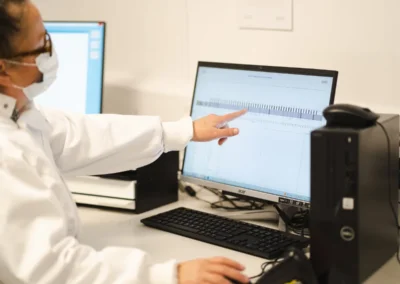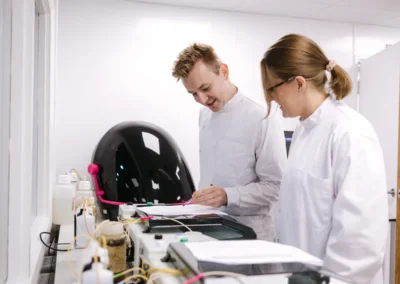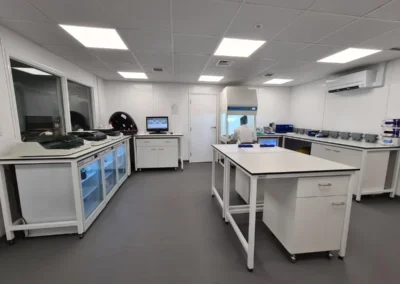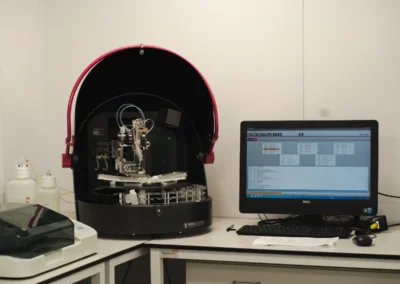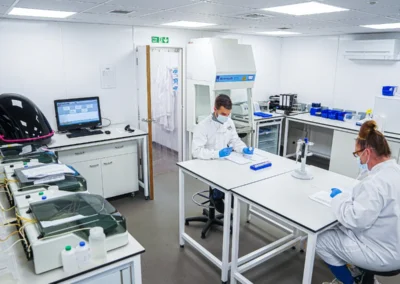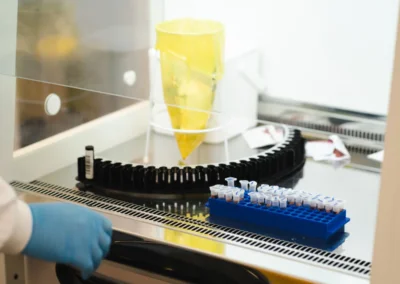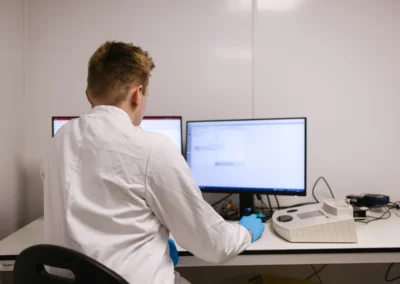Our Labs
Our Laboratory Facility
We use worldwide testing labs provided by UK parent company, Global Science Technology Ltd and are continually enhancing the level of service, speed of delivery of results and variety of tests offered to our clients and their animals.
The laboratory and team of qualified lab technicians are led by the laboratory manager, Joseph Bentley, who strives to ensure the laboratory runs as efficiently as possible. Joseph works closely with the Laboratory & Compliance Director, Michelle Wakefield, to ensure the laboratory is working to the best possible standards and ensure the lab and team continue to provide a first-class service.
When the sample arrives at the ISO 9001:2015 accredited facilities, the item is checked in and linked to your secure account. At this point, you will receive an email notification that the testing process will now begin. The sample will be taken to the hair testing lab where a technician will place it in the testing apparatus and test for up to 300 feedback results. The comprehensive report will then be sent to your email within 7 working days after being quality control checked by a supervising lab technician.
The sample material is then disposed of by our clinical waste disposal company and any documentation submitted to use with your sample is destroyed by our confidential waste provider to ensure your security at all times.
Client records are maintained on our secure service provider, powered by our own bespoke platform, in accordance with GDPR.
Our lab service is supported by a dedicated customer service team that comprises of customer service agents and a panel of nutritionists to help guide you through the results. Customer care is available 24/7, 365 days a week through Livechat.

Four Simple Steps
ONE
Buy securely
TWO
Take the test
THREE
Use the results
FOUR
Make positive changes
Bioresonance For Sensitivity Testing
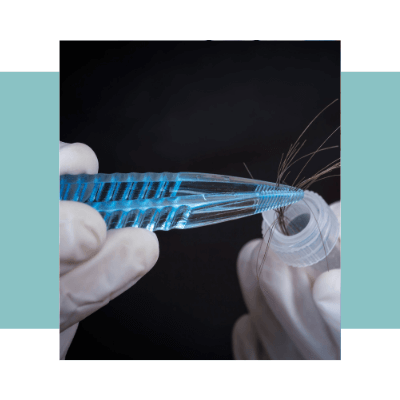
Firstly, if your animal is seriously ill or you believe that it may have a clinical condition then we recommend that you discuss it with your veterinarian immediately. However, bioresonance hair testing is proving to be an alternative that is helping people to experience new health benefits after seeking traditional methods without results.
Offering bioresonance hair testing to our customers and their pets we are able to provide smart and efficient results fast in a non-invasive and pain-free manner. Results can be used to help identify dietary or environmental changes that may be required. We recommend using the results with an elimination and reintroduction diet.
Over the last few years, Bioresonance technology has improved significantly. All that is needed for an optimal analysis is just 3-5 strands of hair or fur from any part of the animal. Our labs have a thorough testing process that tells you whether or not there are any reactions, and therefore whether the animal should try avoiding that item.
The equipment that is used in the testing process for our bioresonance tests is used throughout the world including by Chinese hospitals and over 7000 practitioners in Germany, Austria and Switzerland. Bioresonance therapy is used by various European professional sports and Olympic teams to understand issues not always picked up by conventional medicine.
Bioresonance A Complementary Therapy
Bioresonance therapy and the testing method used for our sensitivity tests are categorised as complementary and alternative medicine (CAM). CAMs cover a wide range of therapies that fall outside mainstream medicine but can become part of an overall healthcare plan in a functional medicine approach.
Complementary therapy is used alongside mainstream medicine as part of a functional medicine approach to healthcare helping people get the most from their wellness journey.
Therapies and practices, which are considered complementary and alternative medicine (CAM) include:
- Aromatherapy
- Acupuncture
- Homeopathy
- Naturopathy
- Osteopathy
Whilst there is scientific evidence in support of some CAM therapies and treatment methods, many lack thorough scientific studies to support claims and benefits.

